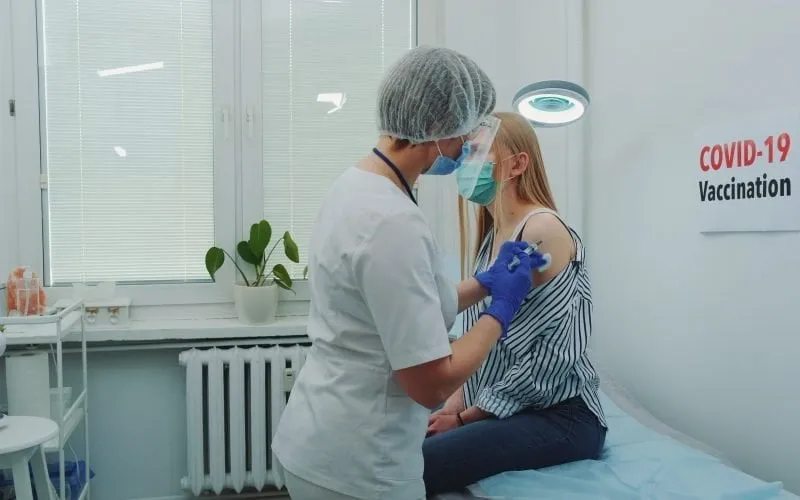by Arjun Walia, The Pulse:
 A British Medical Journal (BMJ) investigation has raised concerns that the VAERS system isn’t operating as intended and that signals are being missed. A few shocking examples are given.
A British Medical Journal (BMJ) investigation has raised concerns that the VAERS system isn’t operating as intended and that signals are being missed. A few shocking examples are given.
The Vaccine Adverse Events Reporting System (VAERS) is co-managed by the US Centers for Disease Control (CDC) and the Food and Drug Administration (FDA).
TRUTH LIVES on at https://sgtreport.tv/
It’s supposed to be a system where people, healthcare workers and physicians of all kind can report what they believe to be an injury resulting from a vaccine.
VAERS claims that serious reports result in the requisition of medical records and at minimum a “manual review.” Deaths, on the other hand, and other “adverse events of special interest” may go through an “in-depth” clinical review by CDC staff.
But what does all of this mean? What are the details? Does this even happen when it should? How do we know if it’s actually happening and proper investigations have occurred?
A recent British Medical Journal (BMJ) investigation, shared by BMJ investigations reporter Jennifer Block, has uncovered that VAERS has not been able to keep up with the pace of the “unprecedented number of reports since the rollout of covid vaccines.” Reports from covid vaccines make up the majority of reports compared to all vaccines and all other years combined.
The truth is that, as the BMJ explains, “the system is overwhelmed, reports aren’t being followed up, and signals are being missed.”
The BMJ has learnt that in the face of an unprecedented 1.7 million reports since the rollout of covid vaccines, VAERS’s staffing was likely not commensurate with the demands of reviewing the serious reports submitted, including reports of death. While other countries have acknowledged deaths that were “likely” or “probably” related to mRNA vaccination, the CDC—which says that it has reviewed nearly 20 000 preliminary reports of death using VAERS (far more than other countries)—has not acknowledged a single death linked to mRNA vaccines.
Before the pandemic VAERS was receiving nearly 60 000 adverse event reports each year. A 2015 CDC article suggests that the agency had the capacity to request records for just a few thousand serious reports each year. But in 2021 the total number of reports shot up to a million, and another 660 000 have been filed since. Nearly one in five meet the criteria of serious.
The investigation provides a few concerning examples as they spoke to more than a dozen people, including physicians and a state medical examiner. Both of them have filed serious injury reports using VAERS on behalf of themselves or patients.
Some of them were never contacted by clinical reviewers.
For example, a veteran medical examiner, forensic pathologist and the current chief medical examiner for the state of Connecticut, James Gill, made his first VAERS report in 2021. It was for a 15-year-old boy who died suddenly days after getting a second jab —what Gill concluded in an autopsy to be a result of the Pfizer-BioNTech vaccine.
It was not until he published his reports in the Archives of Pathology & Laboratory Medicine in February 2022 that the CDC responded. They did so in the form of a letter to the editor contesting Gill’s findings.
Another example from the BMJ:
Patrick Whelan, a rheumatologist and researcher at the University of California Los Angeles, who in 2022 reported how one of his patients, a 7 year old boy, had a cardiac arrest after covid vaccination. The patient was intubated when Whelan filed a VAERS report, and he expected a prompt follow-up call from a CDC investigator.
“I assumed that, since it was a catastrophic event, the safety committee would want to hear about it right away,” he says. But, to his knowledge, nobody called or requested medical records. In an email sent to Whelan months later the FDA said that it had followed up “soon after” receiving his report and had made “several requests” for medical records. The agency added, “Generally speaking, staff might not reach out to providers unless they have specific questions about a case or a VAERS report.”
Last but not least, the BMJ provides another example from a woman named “Helen.” Helen asked to use a pseudonym to protect her employment.
Has all of the ridicule towards those who raised concerns regarding these shots led to a culture of self censorship?
Helen is an intensive care and emergency physician who filed reports on behalf of multiple patients, including six who died. She told The BMJ that she received a request for medical records for just one of the deaths and for two of her patients admitted to the hospital.




